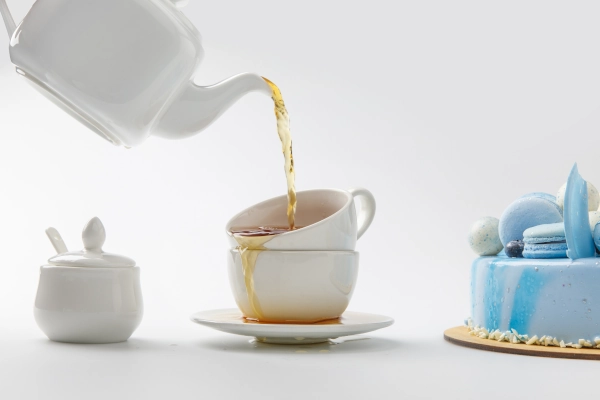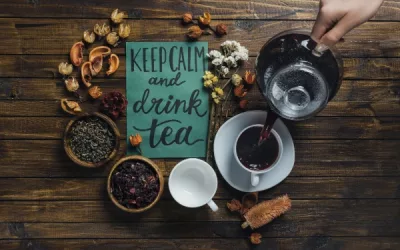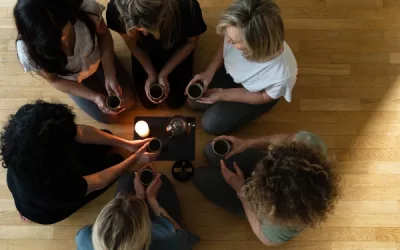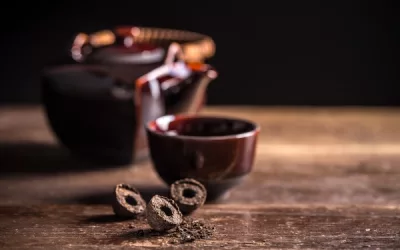Ever found yourself scrolling through TikTok or Twitter, trying to keep up with the latest gossip? The phrase “spill the tea” is at the heart of these viral conversations, inviting us to share secrets and scoop the latest news. Understanding its origins, usage, and cultural impact not only enhances your social media engagement but also gives insight into contemporary communication. This article will take you through everything you need to know about “spilling the tea”—from its history and relevance to its ethical implications and future trends. Get ready to dive deep into the world of gossip!
Table of Content
- What does ‘spill the tea’ mean?
- How did ‘spill the tea’ originate?
- Why is ‘spill the tea’ popular on social media?
- What are some synonyms for ‘spill the tea’?
- How is ‘spill the tea’ reflected in popular culture?
- What ethical considerations surround ‘spilling the tea’?
- How can ‘spill the tea’ be used effectively in conversations?
- What are the future trends for ‘spill the tea’?
- Conclusion
What does ‘spill the tea’ mean?
“Spill the tea” is a popular phrase that means sharing juicy gossip or secrets with someone. Originating from drag culture and the LGBTQ+ community, it has become widely used across various social media platforms. When someone asks you to “spill the tea,” they want you to reveal insider information or an interesting story.
In social conversations, this phrase carries a playful and informal tone. It’s often used among friends or close acquaintances who enjoy discussing tidbits about their lives or the lives of others. The cultural context is rich, stemming from communities where open and candid communication is highly valued. Social media has amplified this term, making it a staple in online dialogues and pop culture discussions.
How is ‘spill the tea’ commonly used in conversations?
People use “spill the tea” in many scenarios, mainly to exchange information that might not be widely known. Here’s how you might encounter it:
- During a chat with friends when talking about mutual acquaintances.
- On social media posts or comments, especially about celebrities or trending topics.
- In text messages or group chats when someone has something important or surprising to share.
- During live streams or video calls, adding an element of excitement to the conversation.
- As a playful way to ask someone for the inside scoop on a particular situation.
In all these situations, the phrase adds a sense of anticipation and intrigue, encouraging open and engaging discussions.
What emotions are typically associated with spilling the tea?
Spilling the tea often stirs a range of emotions, making conversations more lively and engaging. Here’s a look at some of the feelings involved:
- Excitement: Sharing or hearing new information can be thrilling.
- Curiosity: The desire to know more about what’s being discussed.
- Amusement: Gossip often comes with humorous or entertaining elements.
- Surprise: Unexpected details can catch listeners off guard.
- Bonding: Sharing secrets can strengthen friendships and create a sense of closeness.
These emotions contribute to the phrase’s popularity, making it a go-to for those who love engaging in light-hearted and spirited talk.
Using “spill the tea” can significantly influence the dynamics of social interactions. Here are some of the ways it impacts conversations:
- Encourages openness: People are more likely to share personal stories or secrets.
- Builds camaraderie: Engaging in gossip can bring people closer together.
- Sparks discussion: The phrase often leads to lively and animated conversations.
- Enhances engagement: Conversations become more interesting and enjoyable.
- Promotes a relaxed atmosphere: The informal tone makes interactions feel more casual and fun.
By fostering an environment where people feel comfortable sharing, “spill the tea” enriches social interactions and deepens connections.
Back in the 18th century, salons in France were social gatherings where intellectuals, artists, and politicians exchanged ideas. Madame de Pompadour, a prominent figure, was known for her salons, which were often the epicentre of gossip and political intrigue.
These gatherings were an early form of “spilling the tea,” where secrets and stories were shared in an exclusive, informal setting.
My friends and I have a tradition of meeting up once in a while for a good dinner and some catch-up time. One evening, my friend Sarah couldn’t wait to “spill the tea” about her new job. She had overheard some insider information about a major company change that no one else knew about yet.
Her excitement was contagious, and the whole evening buzzed with energy as we delved into every detail. Sharing that moment brought us all closer and made the night unforgettable.

How did ‘spill the tea’ originate?
‘Spill the tea’ is a fascinating phrase with a rich history that has evolved over time to become a staple in modern vernacular, particularly among social media users. The phrase’s journey from its origins to its current popularity is quite interesting and highlights the fluid nature of language and culture.
The phrase ‘spill the tea’ originally comes from drag culture, where ‘T’ stood for truth. It was used to indicate someone was about to reveal some juicy details or gossip. Over time, ‘T’ evolved into ‘tea,’ making the phrase even more playful and widely acceptable.
The mainstream adoption of ‘spill the tea’ was greatly aided by its use in popular media and on social platforms.
To gain a better understanding of the phrase’s history, check out the following table which outlines key milestones in the phrase’s journey, including its cultural significance and impact.
| Year | Event | Cultural Reference | Impact |
|---|---|---|---|
| 1990s | Emergence in drag culture | Drag shows and ball culture | Initially used to signify sharing truths, particularly gossip |
| 2001 | “Midnight in the Garden of Good and Evil” | Book by John Berendt | Popularised the phrase outside of drag culture |
| 2008 | The Urban Dictionary entry | Social media and online forums | Further cemented in internet slang |
| 2010s | RuPaul’s Drag Race | Reality TV show | Mainstream adoption, especially among LGBTQ+ communities |
| 2017 | Twitter and TikTok trend | Social media platforms | Wide usage among younger demographics |
| 2019 | Pop culture references | Memes, TV shows, music lyrics | Became a part of everyday language among teens and young adults |
| 2020s | Standard slang in social media language | Various online communities | Regularly used in everyday conversations |
This table provides an easy-to-understand timeline of how ‘spill the tea’ evolved over the years. By examining these milestones, you can see how the phrase transitioned from niche subculture to mainstream usage.
What does ‘spill the tea’ mean?
‘Spill the tea’ essentially means to share gossip or reveal some juicy details about a particular situation or person. When someone asks you to “spill the tea,” they want you to divulge the inside scoop.
- It conveys curiosity and excitement.
- Commonly used in casual conversations among friends.
- Often seen in social media posts, comments, and memes.
- Can be used in both positive and negative contexts, depending on the nature of the gossip.
In simple terms, if you have some interesting or scandalous information and someone says, “spill the tea,” they’re encouraging you to share it.
How to use ‘spill the tea’ in a sentence
Using ‘spill the tea’ in a sentence is quite straightforward. It’s informal and works best in casual settings. Here are some examples:
- “Did you hear what happened at the party last night? Come on, spill the tea!”
- “I have some news about Sarah and Jake. Ready to spill the tea?”
- “Everyone’s talking about that incident at work. Can someone spill the tea?”
These examples show how the phrase can fit seamlessly into everyday conversations among friends or colleagues looking for the latest gossip.
In the early 2000s, a book titled “Midnight in the Garden of Good and Evil” by John Berendt played a pivotal role in bringing the phrase “spill the tea” to a broader audience. The book, set in Savannah, Georgia, delves into the quirky and mysterious lives of its residents.
One of the characters frequently uses “the tea” to refer to juicy bits of information, bringing the phrase into the literary spotlight. This exposure helped it seep into mainstream culture, where it continued to evolve and gain popularity.
Growing up, I remember my first encounter with the phrase “spill the tea.” It was during a lunch break in high school when a friend casually remarked, “I’ve got some tea to spill.” The excitement and curiosity in the air were palpable.
We all gathered around, eager to hear the latest gossip. That moment stuck with me, and the phrase became a fun, almost ritualistic part of our conversations. Now, whenever I hear “spill the tea,” it brings back fond memories of those carefree days filled with laughter and camaraderie.
Ah, “spill the tea”—the unofficial anthem of online gossipers worldwide. This cheeky phrase has become the lingua franca for sharing juicy tidbits and secrets on platforms like TikTok and Twitter.
You’ve probably seen it tossed around like confetti on New Year’s, but why is it so darn popular? Well, let’s dive into the vortex of meme culture, viral trends, engagement strategies, user-generated content, and community building.
For starters, meme culture thrives on humour, relatability, and a splash of drama. “Spill the tea” delivers all three in a bite-sized package. When a trend goes viral, it swoops in like an attention-grabbing hawk, and “spill the tea” has become that hawk.
Users love engaging with content that feels like they’re in on some secret, leading to tons of likes, shares, and retweets.
And let’s not forget user-generated content. Everyone and their cat can create posts with “spill the tea,” making it a community-builder of sorts. It’s like a club password for anyone who loves a bit of gossip.
So, when influencers pick it up, they’re not just sharing news—they’re inviting you into the fold.
What role does ‘spill the tea’ play in online interactions?
In the wild world of social media, “spill the tea” acts as the social lubricant that greases the wheels of conversation. This phrase makes interactions more engaging and relatable, giving everyone an excuse to sip some hot gossip.
- Engagement Magnet: Bait for likes, comments, and shares.
- Conversational Glue: Keeps the chat flowing like a never-ending soap opera.
- Inclusivity Badge: Makes people feel they’re part of a special, gossip-friendly group.
- Emotional Trigger: Sparks joy, curiosity, and a hint of drama.
- Social Currency: The more ‘tea’ you spill, the more social clout you gain.
When you tag a post with #spillthetea, you’re essentially waving the “Let’s Talk” flag. It invites reactions, comments, and the juicy back-and-forths that social media thrives on. Plus, it creates a sense of community, like everyone’s gathered around the gossip watercooler.
How do influencers use this phrase to engage followers?
Influencers are the wizards of social media engagement, and “spill the tea” is one of their favourite spells. By using this phrase, they not only grab attention but also open up a juicy dialogue that keeps followers glued to their screens.
- Teaser Posts: Drop hints and ask followers to ‘stay tuned’ for some major tea.
- Live Sessions: Host live streams specifically to spill the tea about trending topics.
- Q&A Segments: Use “spill the tea” as a tagline to answer burning questions.
- Polls & Quizzes: Engage followers through interactive posts asking them to choose the type of tea they’d like spilt.
- Collabs: Join forces with other influencers to spill double the tea.
Influencers know that the more you engage your audience, the more loyal they’ll be. Using “spill the tea” encourages followers to interact, anticipate, and, of course, stay tuned for more. It transforms them from passive scrollers into active participants in the influencer’s digital palazzo.
What impact does it have on content creation?
When it comes to content creation, “spill the tea” is like a magic wand. It transforms mundane updates into must-watch or must-read snippets. This phrase has shaped how social media users craft their stories, making everything more intriguing and interactive.
- Hook Factor: Grabs attention right off the bat.
- Storytelling Element: Adds drama and suspense.
- User Interaction: Invites comments, shares, and responses.
- Virality Booster: Increases the chances of content going viral.
- Brand Personality: Adds a fun, relatable touch to a brand’s voice.
Content creators know a good hook when they see one, and “spill the tea” does just that. It turns a run-of-the-mill post into something that grabs eyeballs and invites interaction. It also shapes the narrative: Instead of just telling, creators are teasing, hinting, and revealing, keeping followers perpetually on the edge of their seats.
Back in the day, the Roman Senate was where the “tea” was spilled. Senators like Cicero would stand and share juicy political secrets, accusations, and all sorts of drama. This didn’t just inform the public but also kept them intrigued and engaged with the happenings of the state.
Just like Cicero, today’s social media influencers and users leverage the power of “spill the tea” to keep their audiences hooked in a similar vein.
What are some synonyms for ‘spill the tea’?
When you hear “spill the tea,” you’re already buzzing because someone’s about to drop some juicy intel. But what if you’re tired of the same old phrase? You’re in luck! There are plenty of other ways to share your hot gossip without sounding like a broken record.
Synonyms for “spill the tea” have popped up in different forms. Here’s a rundown of some popular alternatives:
- Dish the dirt: Because, really, who doesn’t love a bit of scandal?
- Gossip: The good old-fashioned word that’s basically immortal.
- Let the cat out of the bag: Sounds ominous, but don’t worry, we’re just talking gossip.
- Spill the beans: It’s less about legumes and more about letting secrets slip.
- Get the lowdown: Your backstage pass to all the latest drama.
These synonyms are more than just words; they pack loads of character. Now, let’s break them down further.
How do these synonyms differ in usage?
Every synonym comes with its own flavour and swagger. Some paint you as the ultimate insider while others are just plain fun.
- Dish the dirt: Perfect for when the gossip is saucy and maybe a bit scandalous. Oprah would approve.
- Gossip: This one’s as old as time. Just use it when you’re chit-chatting about the latest buzz.
- Let the cat out of the bag: Use this when you’ve accidentally revealed someone’s secret. Basically, you’ve done goofed.
- Spill the beans: Great for informal settings, especially when you’re in the mood for some light-hearted chatter.
- Get the lowdown: This is your go-to for a serious and detailed scoop on the matter.
Now, not all these phrases are global gossip. Some are specific to where you are.
Are there any phrases that are more commonly used in specific cultures?
Absolutely! Phrases for sharing secrets can be like passports—they tell you where someone comes from.
- Dish the dirt: Super common in the US, especially among celeb watchers and reality TV fans.
- Gossip: Universal but gets different spins. In the UK, you might hear “having a natter,” while Aussies might go for “having a chinwag.”
- Let the cat out of the bag: Widely used but tends to have a quaint, old-world charm, often heard in the UK.
- Spill the beans: It’s a classic mainly used in the US, though its roots are pretty much global.
- Get the lowdown: This one’s straight out of American pop culture.
These phrases show how dynamic and colourful language can be and offer us plenty of ways to spill the tea, no matter where we’re from.
What do these synonyms reveal about language evolution?
Language, like fashion, keeps evolving. Our need to come up with new ways to spill the tea tells us heaps about how culture and communication change.
- Adaptive: We invent fresher, hipper terms as old ones fade.
- Inclusive: The more global we get, the richer our slang becomes.
- Portable: Language trends travel. Today’s British slang could be tomorrow’s American pop culture icon.
- Expressive: We use language to show our personality and style. New phrases allow that unique flair.
Language is a living, breathing thing, reflecting society’s twists and turns. By keeping our lingo fresh, we stay connected and relevant instead of sounding like our gran.
But let’s not forget good old history. One notable case? Remember “Reading” in the sense of “reading someone to filth” popularised within the drag culture, thanks to the legendary Paris Is Burning documentary in the 1990s? That’s now mainstream slang.
It wasn’t just a clever term— it was a powerful tool within a marginalised community. Now, RuPaul’s Drag Race helped catapult it into everyday use.
So, whether you’re dishing the dirt or spilling the beans, these phrases do more than just entertain—they reflect our collective journey through time, pop culture, and global connections.
How is ‘spill the tea’ reflected in popular culture?
“Spill the tea” has made quite the splash in popular culture. Ever noticed how it pops up in your favourite TV shows, movies, literature, and even in music? You’re not alone! The phrase, essentially meaning to dish out the gossip, has wormed its way relentlessly into the everyday lexicon, especially for those lurking around the digital corridors of social media.
From sassy drag queens on reality TV to chatty characters in blockbuster films, “spill the tea” is everywhere. It’s inescapable, like glitter at a disco – persistent and slightly annoying but irresistible. And don’t even get me started on the memes!
We see this phrase plastered on everything, from GIFs of Kermit the Frog sipping tea (you’ve seen it, I know you have) to celebrities oversharing on Twitter. The evolution of “spill the tea” highlights our endless fascination with gossip and drama.
What are some notable examples of this phrase in pop culture?
Alright, let’s get down to the nitty-gritty of notable instances where “spill the tea” has shown up in our favourite bits of pop culture:
- RuPaul’s Drag Race: The phrase probably hit its mainstream stride thanks to this iconic reality show. Queens use it liberally while they spill all sorts of truths (and sometimes shade) during confessionals.
- Twitter Battles: Remember when celebrities like Taylor Swift had those very public spats? The drama had everyone telling each other to “spill the tea.”
- Netflix Standup Specials: Comedians aren’t shy about using it. It’s a quick and trendy way to clue the audience in that some juicy titbits are coming.
- Literature: Some modern-day novels, particularly in the young adult genre, have characters dropping “spill the tea” like it’s hot.
- Memes Galore: Let’s talk about those viral memes, especially the Kermit sipping tea one. It became the unofficial mascot for “spill the tea.” Because nothing says gossip like a frog enjoying his beverage in peace.
The sheer diversity in these examples shows how ingrained the phrase has become across different platforms and mediums.
The usage of “spill the tea” in pop culture tells us a lot about societal attitudes towards gossip. Our collective eagerness to share bits of information, true or peppered with fiction, seems to be insatiable.
By embracing this phrase, we reveal our own paradoxical love-hate relationship with gossip. We enjoy it, loathe it, and can’t seem to stop ourselves from partaking in it.
How has its portrayal evolved over time?
Since it emerged from drag culture (thank you, drag queens, for gifting us this gem), “spill the tea” has undergone quite a transformation. The phrase oozes sass and a bit of cheeky charm, making it an instant hit.
- Early Days in Drag Culture: Initially, the phrase was all about truth-telling in the community. It was used within circles as a way to share genuine, sometimes hard-hitting truths.
- Mainstream Media Adoption: As the term made its way into popular TV shows and films, it began morphing into a more general term for gossip, often losing some of its raw edge but gaining widespread appeal.
- Social Media Explosion: Ah, the golden age of tweets and hashtags. “Spill the tea” thrived here, creating an online culture obsessed with quick, digestible snippets of drama.
- Memes and Virality: Each meme relating to “spill the tea” added another layer of humour and accessibility to the term, making it a whimsical yet pointed way to ask for the latest gossip.
This evolution reveals how adaptable the phrase is, reflecting our ever-increasing obsession with social interaction and information exchange.
Adopting and evolving phrases like “spill the tea” mirror society’s shifting views on gossip. What was once considered somewhat clandestine and whispered in hush tones now becomes a badge of honour, a casual part of conversation.
We’ve become more open, if not slightly shameless, in our pursuit of candidness—though, with a splash of intelligence, we’re also more aware of the consequences of gossip.
What does this say about societal attitudes towards gossip?
Let’s face it, we’re all nosy to some extent—it’s just part of being human. “Spill the tea” reveals our collective hunger for the inside scoop, but also our evolving perception of sharing and consuming gossip:
- Normalisation: We’ve moved from gossip being a private, almost taboo activity to an accepted, even celebrated part of daily life.
- Entertainment: Who doesn’t find some level of drama entertaining? Our love for tea-spilling showcases how much we enjoy a good story, regardless of the source.
- Community: Sharing gossip often brings about a sense of camaraderie among friends and strangers alike. It’s a social glue holding us together in the gossip mill.
- Awareness: Modern takes on “spill the tea” often come with a pinch of self-awareness. We know gossip can be damaging, but we indulge with perhaps a bit more caution now.
The widespread use and acceptance of “spill the tea” display our collective appetite for drama and intrigue. We thrive on stories, even when they’re whispered over a metaphorical cuppa.
During the 18th-century coffeehouse culture in England (oh yes, society’s obsession with gossip is not new), these establishments were the breeding grounds for rumours and news.
Luminaries like Samuel Pepys and Jonathan Swift would spend hours in coffeehouses, engaging in lively debates, sharing scandalous news, and undoubtedly “spilling the tea” of their time.
These coffeehouses were the social media platforms of their day, showing us that while fashions and phrases may change, our fascination with gossip remains timeless.
What ethical considerations surround ‘spilling the tea’?
Alright folks, gather round, because it’s time to spill the ethics – and maybe a bit of that metaphorical tea too.
Gossiping isn’t just yapping away about who’s dating who or what so-and-so said at last Friday’s party. It gets messier when you realise that ‘spilling the tea’ involves privacy concerns, misinformation, social responsibility, and the oh-so-juicy consequences of blabbing secrets. The moral implications of this pastime make your head spin faster than a TikTok dance trend.
Navigating the murky waters of ethical gossip is like walking a tightrope – one wrong step and SPLAT! There are a few things you should consider before you become the next gossipmonger:
- Think about privacy. Are you sharing something that someone told you in confidence?
- Be wary of misinformation. Is what you’re sharing accurate, or did you get it from someone who knows someone who thinks they know?
- Consider your social responsibility. Are you helping anyone (other than your ego) by sharing the info?
- Check your motives. Are you sharing this to help, or to harm?
- Realise the consequences. Will this impact reputations, careers, or mental well-being?
Gossip can be like playing with fire – sometimes you just warm up by the flames, and other times you burn the whole neighbourhood down.
Being a little Nosy Nellie every once in a while doesn’t make you a villain, but bear in mind that spreading half-truths or exposing someone’s personal life might make you the least popular person at the next social gathering.
What are the potential repercussions of spilling tea?
Spill a little tea here and there, and you might find yourself knee-deep in drama – the kind you usually only see on reality TV. The repercussions of blathering about someone can be more severe than you’d think.
- Damage to reputations: Once it’s out there, it’s hard to take back.
- Loss of trust: People might think twice before confiding in you again.
- Emotional fallout: It can lead to stress, anxiety, or even depression for those involved.
- Professional backlash: A juicy piece of gossip can ruin someone’s career faster than you can say “oops.”
- Social isolation: Nobody wants to be around the person who couldn’t keep their mouth shut.
If you want to avoid turning your life into a soap opera, think twice before you start yapping. Just because you have the scoop, doesn’t mean you need to deliver it.
How can users ensure they are sharing information responsibly?
Sharing’s caring, right? Only if you’re doing it responsibly! Let’s break down how you can spill the tea without leaving a trail of chaos in your wake:
- Verify the facts: Cross-check before you spread.
- Get consent: If it involves someone else’s personal life, ask if they’re okay with you sharing.
- Positive intentions: Share to inform, not to inflame.
- Respect privacy: Some things are meant to stay private.
- Think before posting: Once it’s on social media, there’s no going back.
By following these steps, you can channel your inner Sherlock Holmes without becoming the town crier.
Back in the 18th century, James Boswell, the famous biographer of Samuel Johnson, loved his gossip. His diary entries are stuffed with the tea of his time, from London’s literary circles to political scandals.
He knew that the pen (or the wagging tongue) was mightier than the sword, though he sometimes shared a bit too much for his own good. His works remind us that while gossip can be a source of fascination, it’s got to be handled with care – after all, loose lips sink ships.
How can ‘spill the tea’ be used effectively in conversations?
Alright, let’s dive into the juicy subject of ‘spill the tea’. You know, that phrase we all love to use when we’re about to dish out some hot, juicy gossip. If you want to use ‘spill the tea’ effectively, you need to know when and how to drop it like it’s hot. Whether you’re at a café catching up with friends, or shooting off Tweets faster than a Kardashian can break the internet, context is everything.
Engaging with the phrase requires a bit of finesse. Just like a good tea, the setting, audience, tone, and flow of your conversation matter. Don’t just throw it out there willy-nilly; think of it as your secret weapon for keeping conversations lively and compelling.
What are some tips for using this phrase in different settings?
Different places, different rules. You can’t just sit at a business meeting and ask the CEO to “spill the tea” about the quarterly losses, right? There are specific ways to finesse it into different settings:
- Casual Hangouts: Great place to use it. When you and your mates are catching up, throw this phrase out there to dig for the latest drama without sounding nosy.
- Social Media: TikTok, Instagram, Twitter – these platforms are the perfect playgrounds to ask your followers to spill the tea on the latest trends or scandalous events.
- Family Gatherings: Be cautious with older generations. Aunt Mildred might not appreciate the phrase, but younger cousins will likely be on board.
- Work Environment: Steer clear unless your office culture is super chill and laid-back. Otherwise, you’re better off saving it for happy hour.
When you know the setting, you’ll know the rules. Keeping it relevant to the circumstances will make you sound savvy, not sloppy.
How can one avoid misunderstandings when using it?
Alright, so you don’t want to come off as that person who misuses ‘spill the tea.’ Here are some quick tips on dodging any awkward moments:
- Know Your Audience: If you’re with folks who’d rather discuss stocks than who kissed who at the club, maybe dial it down a notch.
- Tone Matters: Saying ‘spill the tea’ with a playful tone versus a stern one can make all the difference. Keep it light and casual.
- Context is Key: Don’t drop the phrase in serious or formal contexts. Save it for laid-back situations where gossip is actually welcome.
- Read Reactions: If you see eyes bulging or brows furrowing, maybe change the subject or tone it down quickly.
Avoiding misunderstandings is pretty straightforward. Just think before you spill, literally and figuratively.
What are the best practices for engaging others with this phrase?
To truly master the art of ‘spilling the tea,’ you need to engage others so the conversation flows naturally:
- Hook Them In: Start with an intriguing statement like, “You won’t believe what I just heard!”
- Be Genuine: People will engage more if they feel you’re authentic. Avoid sounding too forced or over-the-top.
- Reciprocate Gossip: If someone spills tea for you, be prepared to offer some in return. Sharing is caring, after all.
- Body Language: Lean in when you say it, maybe even lower your voice like you’re sharing a secret. Adds drama and suspense.
- Follow-Up Questions: Keep the conversation going with, “And then what happened?” or “No way, tell me more!”
By engaging others effectively, you’ll become the MVP of tea spills, guaranteed to keep everyone interested and entertained.
So, you think spilling the tea is a modern craze? Think again. One of the biggest tea spills in history happened way back in the 1700s. The Boston Tea Party, you’ve heard of it? Some cheeky colonists didn’t just spill the tea, they dumped an entire shipload into the Boston Harbor. This act of rebellion against those pesky British taxes became a key event leading up to the American Revolution. Now, that is some serious tea to spill!
What are the future trends for ‘spill the tea’?
Spill the tea, that catchy phrase synonymous with dishing out juicy gossip, isn’t going anywhere anytime soon. As language constantly evolves and technology paves the way for new forms of communication, it’s likely that “spill the tea” will continue to adapt and maintain its relevance.
We’re talking savvy social media trends, cultural shifts, and the impact of new tech on how we spill our figurative teapots of secrets and drama. Let’s get the kettle boiling on what’s next.
It’s no secret (pun absolutely intended) that social media is the driving force behind much of today’s evolving language. Platforms like TikTok, Instagram, and Twitter are the hotbeds where slang and idioms either gain traction or fall flat.
So, if you want to unravel the future of “spill the tea”, you need to keep an eye on these platforms. They are trendsetters, and the phrase “spill the tea” will likely morph as different generations adopt and adapt it in their own quirky ways.
But it’s not just about what’s trendy; it’s about the cultural shifts and how we consume and share information. Gen Z won’t spill the same tea as Boomers; they might not even use tea at all. Who knows, by 2030, we might be “spilling the bubble tea“.
How might the meaning of ‘spill the tea’ change in the future?
Language, like fashion, is cyclical and ever-changing. “Spill the tea” could see a variety of changes in the future.
- Incorporate new mediums: From TikTok videos to VR gossip sessions, the ways we spill could become increasingly immersive.
- Change in context: “Spill the tea” might expand beyond gossip to include any sort of significant information, morphing into a catch-all phrase.
- Cultural integration: As cultures blend, “spill the tea” might be infused with elements from various languages and traditions.
- Generational twist: Gen Z and future generations might give it a new spin, making it their own or even inventing a new phrase altogether.
- Technology’s impact: With AI and augmented reality making headway, spilling the tea might become something we do with the help of avatars or through virtual gatherings.
Grab your digital teapot because the future looks exciting and delightfully unpredictable.
What factors could influence its continued popularity?
Several factors could determine whether “spill the tea” remains popular or gets shelved.
- Cultural relevance: If it stays relevant to pop culture, it’ll stick around. Think social media influencers and viral trends keeping it alive.
- Media portrayal: Movies, TV shows, and even books adopting and adapting the phrase will prolong its shelf life.
- Ease of use: The catchiness and memorability of the phrase means it’s easy to use, share, and understand.
- Adaptability: If it can adapt to new contexts and mediums, such as memes and GIFs, it’ll continue to be relevant.
- Cross-generational appeal: If it can appeal to various age groups or adapt to new generational slang, its popularity is assured.
These factors will work in tandem, keeping “spill the tea” a cornerstone of social vernacular.
How can users stay updated on language trends?
If you want to stay in the know and keep your slang game strong, pay attention to the following:
- Follow social media influencers: They are usually the first to adopt and popularise new slang.
- Join online communities: Reddit, Twitter, and niche forums often discuss and dissect evolving language.
- Stay tuned to entertainment: Watch TV shows, movies, and follow music trends to see what phrases are gaining traction.
- Use language apps: Apps like Urban Dictionary and Slangit keep updated definitions of new slang.
- Engage with younger people: Kids, nieces, nephews, or even TikTok creators—they’ll keep you informed on the latest lingo.
Staying updated is mostly about being curious and open to change, so immerse yourself where the action happens.
In the realm of historical gossip, think about Marie Antoinette. People loved to spill the tea about her in 18th-century France. From her extravagant lifestyle to the infamous (and probably misattributed) “Let them eat cake” quote, she was the subject of endless rumours.
Those juicy tidbits spread like wildfire, showing that even centuries ago, people were all about spilling the tea. Of course, it wasn’t called that back then, but the spirit was definitely the same.
Conclusion
As I reflect on the journey through the meaning, origins, and cultural impact of the phrase “spill the tea,” I find myself recognising its unique position in contemporary social discourse.
We’ve explored how this vibrant expression encapsulates not just gossip and the sharing of secrets, but also shapes the informal communication styles we now cherish, particularly across social media platforms.
The emotions tied to “spilling the tea”—curiosity, excitement, and sometimes drama—add an exhilarating flair to our interactions, emphasising how integral this phrase has become in our social fabric.
The evolution of “spill the tea” from its origins to its mainstream acceptance speaks volumes about the way language adapts and thrives within our ever-changing cultural landscape.
With its roots deep within specific communities, the phrase’s migration into general usage highlights how important shared experiences and cultural symbols are in building community ties, particularly online.
The ramifications of sharing gossip responsibly, as well as the ethical weight we’re all learning to navigate, underscore the importance of mindfulness in our conversations today.
Looking ahead, the future of “spill the tea” undoubtably holds potential for further evolution. As new generations emerge and social media continues to shape our language, I can’t help but wonder how this phrase will adapt to future contexts.
Will we still use it, or will something entirely new take its place? Staying attuned to these changes not only enriches our communication but also deepens our understanding of one another in this fast-paced digital era.
In closing, let me leave you with a thought: in a world where information spreads at lightning speed, understanding the balance between sharing and respecting personal boundaries is vital.
After all, how we choose to “spill the tea” not only reflects our curiosity but also the kind of community we wish to foster. So, the next time the opportunity arises, consider—will you spill the tea responsibly?
Resources
- Just a Joke? The Social Impact of Internet Memes
- Gossip, diversity and community cohesion: the case of …
- Better Than Its Reputation? Gossip and the Reasons Why We and Individuals With “Dark” Personalities Talk About Others
- Into the meme stream: The value and spectacle of Internet memes
- Internet memes as knowledge practice in social …
- Slangvolution: A Causal Analysis of Semantic Change and Frequency …
- Evolution of Internet Slang and Its Impact on English Language …
- The growth, spread, and mutation of internet phenomena: A study of memes







